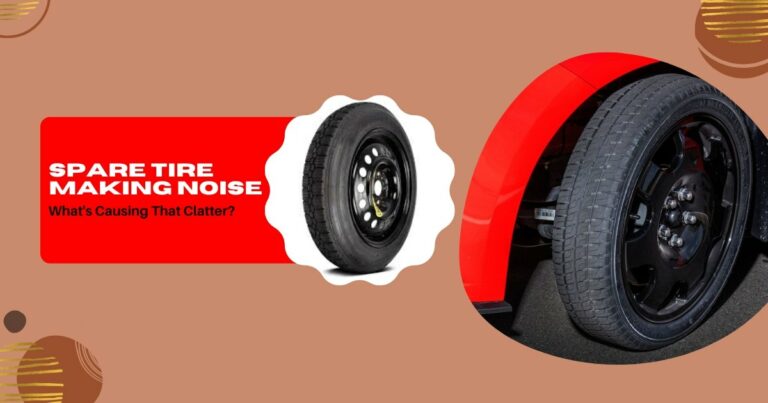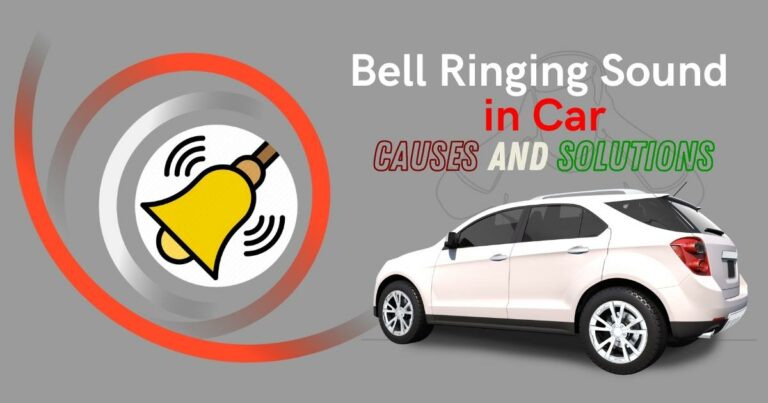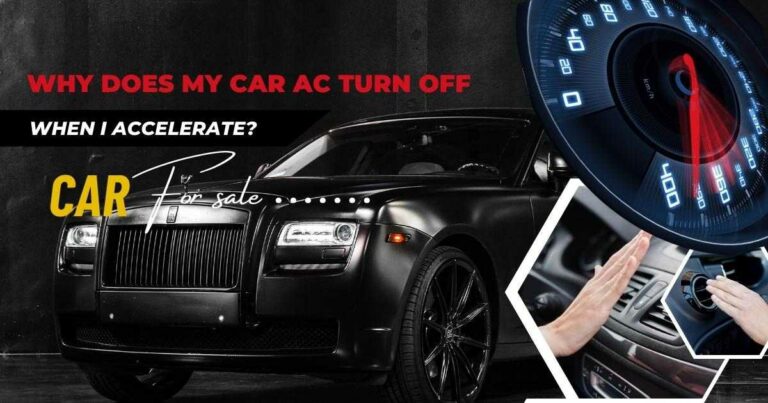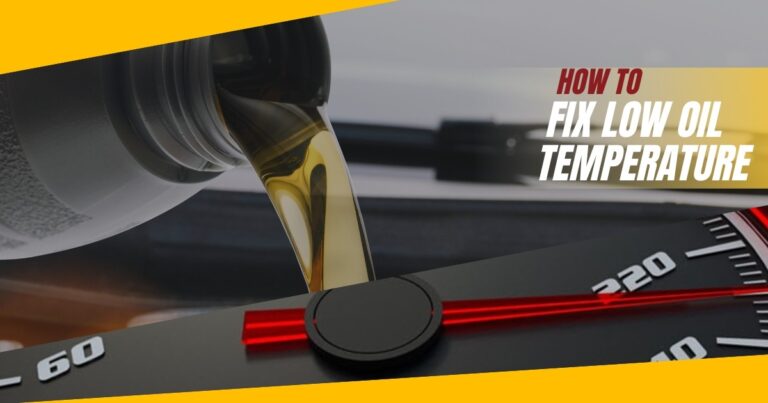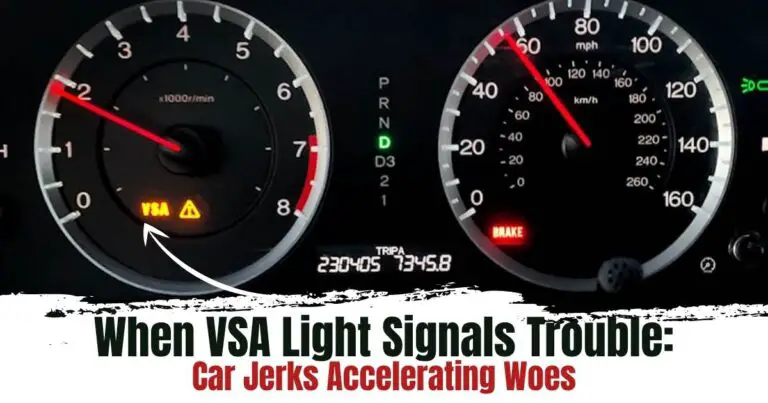Why is My Car Making a Siren Noise? Is it a Cause for Alarm
Have you ever been in the middle of the road, and suddenly your car starts making a wailing sound that resembles the sound of a siren? When your vehicle starts to sound like a siren, it’s not only unsettling but also prompts a flurry of questions. Why is my car making a siren noise? Is it a warning of something serious, or just a minor glitch?
You might find yourself glancing nervously in your rearview mirror, half-expecting to see flashing lights and a police car behind you. But as you soon realize, the source of the sound is your own vehicle. This can be a startling moment that can send a jolt of panic through any driver. Furthermore, failing to identify the source could lead to confusion, delayed reactions, and hazardous situations on the road.
Causes of Car Siren Noise
It is not uncommon for a car to produce noise now and then, but when it becomes persistent or noticeably louder, it is often a sign of a more significant issue that requires attention. Therefore, if you notice your car making a siren noise, it’s best to err on the side of caution to ensure both your safety and the longevity of your vehicle.
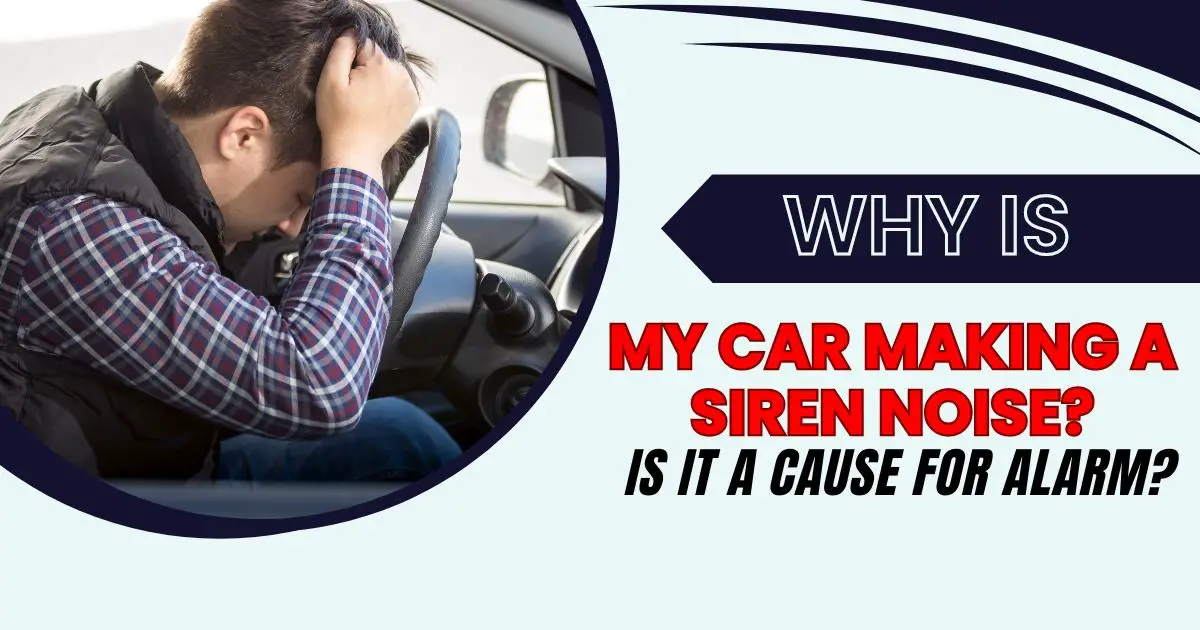
Why Does My Car Sound Like a Siren?
Alarm System Fault
Many cars are equipped with alarm systems that produce a siren when triggered by unauthorized entry or attempted theft. If your car’s alarm system is malfunctioning, it might activate without any apparent reason, causing the siren noise.
This often occurs due to faulty sensors misinterpreting normal activity as unauthorized entry. Wiring issues can be another possible culprit causing erratic behavior. A malfunctioning control module may also be to blame, as it can erroneously triggers the alarm system.
Check your car’s alarm system settings and try to determine if there’s a pattern to when the siren noise occurs. If it seems to activate randomly or frequently without cause, it’s best to get to the root cause of the problem.
Malfunctioning PCV Valve
PCV is a system used in internal combustion engines to control and manage the buildup of gases and pressure within the engine’s crankcase. This system utilizes a valve to regulate the flow of these gases, which allows them to be drawn back into the intake manifold to be burned in the combustion chamber.
If the PCV valve fails to regulate the pressure effectively, it can cause unusual pressure buildup within the crankcase. The pressure imbalance can, in turn, result in abnormal noises as air tries to escape from areas where it shouldn’t. In extreme cases, this imbalance could lead to unusual engine behaviors, such as occasional misfires.
Brake Problems
A siren-like noise coming from a car, especially when braking, can be a symptom of brake problems. This might occur if the brake pads are worn down to the point where they make contact with the brake rotor, causing a high-pitched squealing siren sound when you apply the brakes.
If you notice the siren noise primarily when braking, it’s essential to have your brakes inspected as soon as possible. If you continue to drive with worn brake pads, it can lead to further damage and compromised safety.
Squealing Belt
A common cause of siren noise in cars is a worn or loose serpentine belt. This belt drives multiple components in your engine, including the alternator, power steering pump, and air conditioning compressor. If it’s loose or worn, it can sometimes produce a high-pitched squealing siren sound, especially when the engine is under load.
Faulty Wheel Bearings
If the siren noise seems to be coming from one of the wheels, it’s possible that you have a faulty wheel bearing. When a wheel bearing begins to wear out, it can produce a whining or siren-like noise, especially when the vehicle is in motion.
Faulty wheel bearings not only produce unpleasant noises but also pose a safety risk. A severely worn wheel bearing can cause the wheel to wobble or even detach from the vehicle, leading to loss of control and potentially hazardous situations.
Turbo Whistle
The turbo whistle, often described as a high-pitched sound resembling a whistle or siren, is a common characteristic of turbocharged vehicles. It occurs when the turbocharger’s compressor wheel spins at high speeds, forcing air into the engine’s intake system. This scenario may leave most drivers wondering, “Why does my car sound like a siren when I accelerate?”
The turbo whistle is more pronounced when the turbocharger is operating near its maximum efficiency and boost levels. Factors that can influence the intensity of the turbo whistle include the size and design of the turbocharger, the engine’s RPM range, the exhaust system’s configuration, and the intake system’s design.
Ideally, turbochargers produce some amount of sound, which often goes unnoticed by most people. However, if the whistling/siren sound becomes louder, more noticeable, or undergoes any changes, it may indicate underlying issues that need further investigation. Common causes of abnormal turbo noise include;
- Boost, air, or vacuum leaks in your engine intake or intercooler
- Damage to the compressor wheel
- Split or damaged hoses
- Over boosting, possibly due to a wastegate fault or poor remap
Fortunately, these issues are typically not severe and can be resolved by a proficient turbo specialist. That said, it’s essential to address any changes in turbo noise promptly to ensure optimal performance and prevent damage to the turbocharger or engine.
Exhaust Gasket Vibration
Exhaust gasket vibration often occurs when parts of the exhaust system become loose and rub against each other or adjacent components. As the components rub against each other or adjacent surfaces, they create friction and produce a buzzing or vibrating noise.
The buzzing noise resulting from exhaust gasket vibration can have characteristics reminiscent of a siren, particularly if the vibration frequency aligns with certain harmonics. This noise may be more pronounced during specific driving conditions, such as acceleration or deceleration.
Also Read: Why Does My Car Smell Like Onions? Causes and Remedies
The Bottom Line
As a driver, you may have grown accustomed to the usual sounds your vehicle produces. For some motorists, a siren noise can be annoying, but to others, it’s actually not a cause for alarm. Regardless of individual tolerance levels, hearing a strange siren noise from your car should be treated with the utmost seriousness and caution. Ignoring these abnormal noises and delaying a visit to the mechanic can lead to exacerbated problems and increased repair costs.

